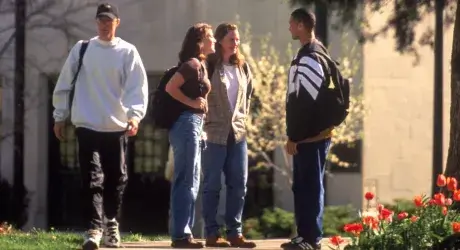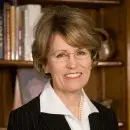The Lincoln Project: Excellence and Access in Public Higher Education

Public colleges and universities are key engines of economic growth, innovation, and upward mobility. This project explored strategies to preserve the strength and diversity of institutions of higher education.
Public higher education is key to U.S. educational infrastructure and the foundation of competitiveness. As centers of learning, culture, research, and entrepreneurship, these institutions drive social mobility and economic growth. Yet over the past decade, state funding to these universities has declined precipitously, forcing campuses across the country to make difficult choices about institutional spending and resource allocation.
The Lincoln Project: Excellence and Access in Public Higher Education has considered the implications of reduced state investment in public higher education; assessed the role of the federal government in funding our great public research universities; and developed recommendations for ensuring that public universities continue to serve the nation as engines of economic development and opportunity for Americans from all backgrounds.
The Lincoln Project is named for President Abraham Lincoln to commemorate his role in signing the Morrill Act of 1862, which laid the groundwork for the United States’ public university system.
Lincoln Project Introductory Video
People
Lawrence S. Bacow
Gene D. Block
Henry E. Brady
Philip N. Bredesen
Nancy E. Cantor
John T. Casteen
Jonathan Richard Cole
Gray Davis
J. Patrick Doyle
David B. Frohnmayer
E. Gordon Gee
Matthew Goldstein
Donald Graham
Carl Guardino
Jim Hackett
Robert D. Haas
Anne Weaver Hart
Michael Hout
Kay Bailey Hutchison
James Albert Smith Leach
Earl Lewis
Ann Marie Lipinski
George Miller
John W. Rogers
William Powers Jr.
Shirley M. Tilghman
Phyllis M. Wise
Frank Yeary
Pauline Ruth Yu
Events
Project Outreach
The Lincoln Project held regional meetings and briefings in 15 states across the country bringing together leaders in public higher education, government, policy, business, and philanthropy. Over 38,000 print copies of the project's five publications were distributed to stakeholders around the country. The project was cited extensively in a broad range of media outlets including The New York Times, The Washington Post, The Los Angeles Times, The Boston Globe, The San Francisco Chronicle, The Atlantic, CNN Money, Forbes, WGBH News, The Chronicle of Higher Education, and Inside Higher Ed.
Learn more about the Lincoln Project's influence:




